
Store shelves are bursting with nondairy milk options made from nuts, seeds, legumes, grains and more. How the heck do you choose? Don’t worry. We got you. Here’s a breakdown of some—though by no means all—popular plant-based milks. You may want to make a little more room in the fridge and pour an extra bowl of cereal …
01
Soy
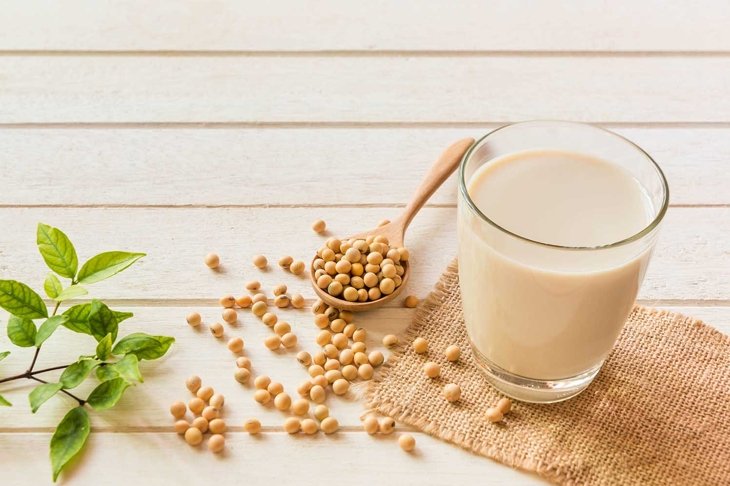
Studies have found that whole soy foods, including soy milk, may promote good health by keeping cholesterol levels in check, increasing bone mineral density and easing menopausal symptoms.
The abundance of isoflavones (an estrogen-like plant compound) found in soy is often credited with soy’s multitude of health benefits. In the past, concerns have been raised about isoflavones and cancer risk; however, eating a moderate amount of whole soy foods as part of a well-rounded diet does not appear to increase cancer risk, and actually appears to have a protective effect.
Containing about 8 g of protein per 8 oz cup, soy milk can naturally compete with cow’s milk in terms of protein content. And soy protein contains all essential amino acids, making it one of the few plant-based sources of complete protein.
Soy milk is also a source of many minerals, including selenium, copper and magnesium.
The verdict: Soy milk can be a good choice for children over two years old, people with nut allergies and those looking for high protein content in their milk.
02
Hemp
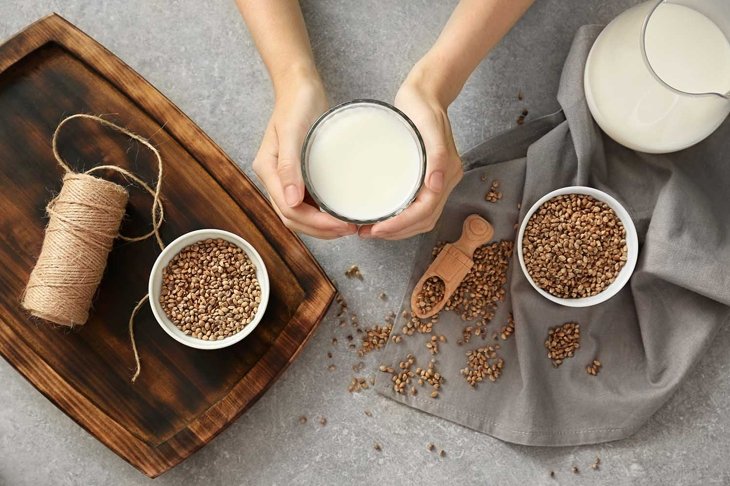
Made from the seeds of the hemp plant, hemp milk has a distinctive nutty taste and creamy texture.
Like soy, the protein found in hemp milk contains all essential amino acids; however, there tends to be less protein in hemp milk than in soy milk (but more than in many other plant-based milks).
Hemp milk contains omega-3 fatty acid in the form of alpha-linolenic acid. Diets rich in omega-3 fatty acids may reduce the risk of heart disease. Hemp milk is also a good source of iron.
The verdict: Hemp milk can be awesome for those with soy or tree nut allergies, as well as people looking to up their intake of essential fatty acids.
03
Coconut
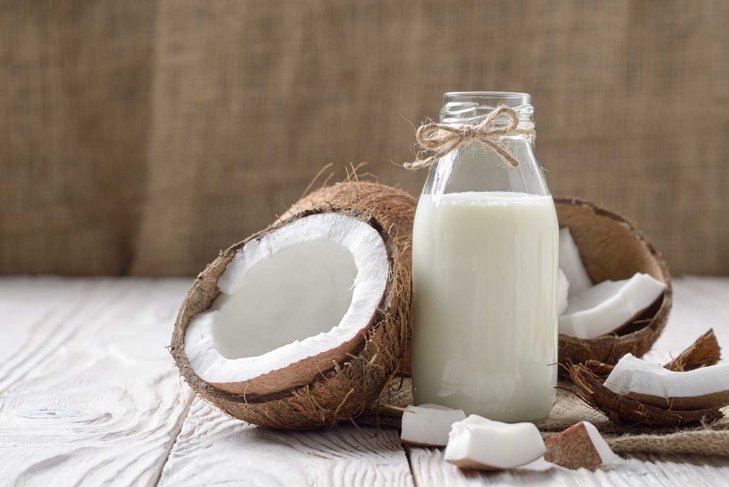
For most purposes, you’ll want to choose a fortified coconut milk beverage, not the rich canned milk. Coconut milk beverages can be a good source of magnesium, calcium and vitamin D. They’re generally low in protein.
Coconut milk beverages tend to be higher in saturated fat than other milk alternatives, making them good candidates to replace cream in some dishes. A moderate amount of saturated fat is essential for brain development in children and can boost the immune system.
The verdict: Coconut milk can be a good option for those with soy allergies—especially those looking for a naturally creamy, sweet-tasting milk (say, for coffee). It’s generally safe for those with tree nut allergies, but speak with your allergist first.
04
Almond
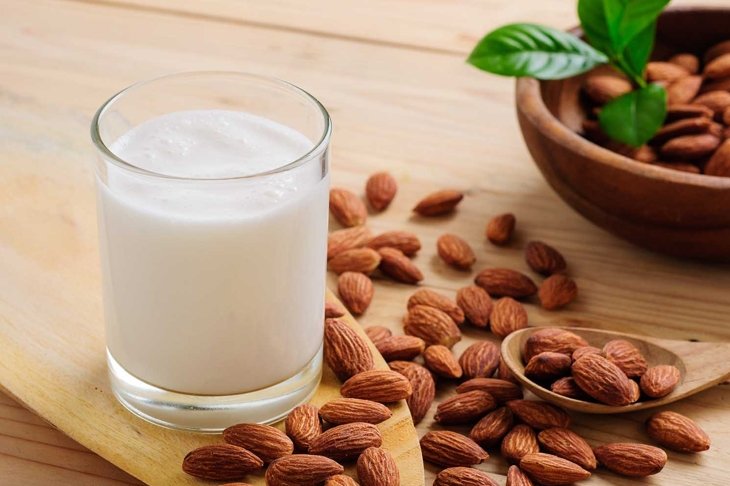
With its low glycemic index, unsweetened almond milk has little impact on blood sugar levels, making it a good choice for diabetics. It’s also low in calories (clocking in at about 30 calories per 8 oz glass).
Almonds are a good source of bone-building calcium, and almond milk is often fortified with even more of this nutrient. Plus, almond milk contains plenty of vitamin E (up to half the recommended daily value in just one cup!). In addition to having antioxidant properties, vitamin E may help to widen blood vessels, preventing blood clots.
The verdict: People with soy allergies and those watching their caloric intake can benefit from choosing almond milk.
05
What about iodine?

A recent British study pointed out that plant-based milks contain far less iodine, a mineral essential for fetal brain development and thyroid health, than cow’s milk does. Dairy is often a primary source of iodine in the American diet.
To ensure everyone in your family (born or unborn!) gets the right amount of iodine, speak with your doctor or health care practitioner about vegan iodine supplements (available at most natural health retailers).
06
Cashew
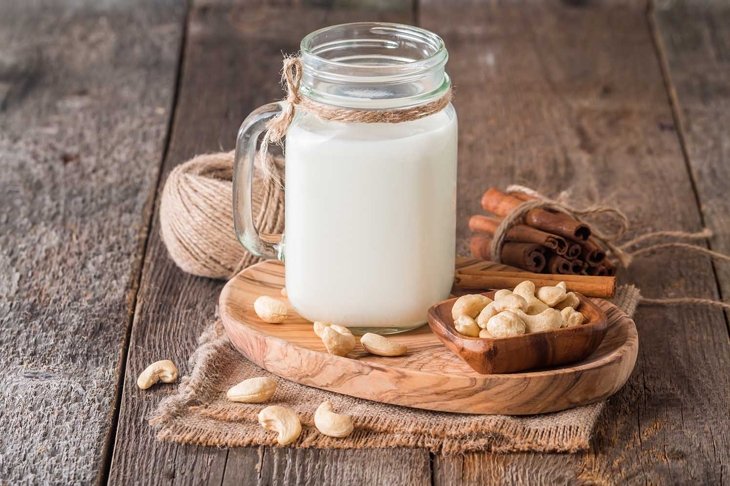
With its sweet, buttery taste and monounsaturated fatty acids (MUFAs), cashew milk is one deliciously healthy option. The best part? Cashew milk often contains fewer calories than comparable milks—about 25 calories per 8 oz cup of an unsweetened variety.
Research suggests diets that favor MUFAs in moderation over other fats may protect the heart by reducing LDL (“bad”) cholesterol levels, improving blood vessel function and helping with blood sugar control.
Like almond milk, cashew milk is a fantastic source of vitamin E.
The verdict: Cashew milk can be a high-five-worthy choice for people with soy allergies and those watching their caloric intake—particularly those looking for a creamy, rich-tasting beverage.
07
Pea
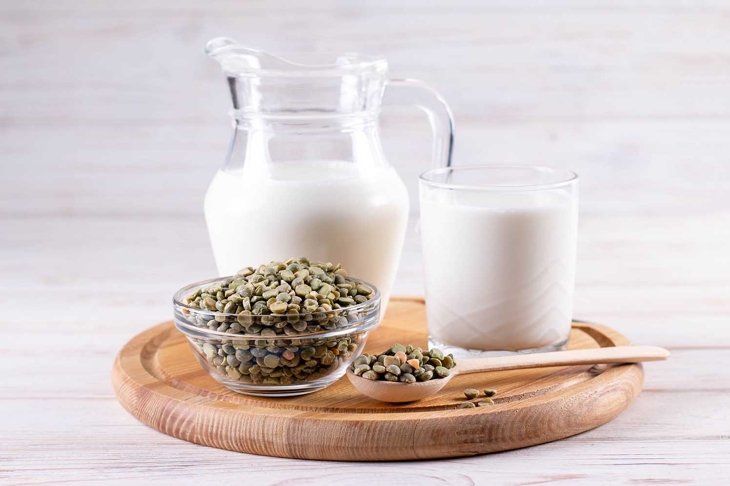
A relative newcomer to the plant-based milk ranks, this drink does not come from green peas, but from yellow ones. The manufacturing process for pea milk is unique because it retains the peas’ high protein content.
Pea milk also contains a healthy dose of omega-3 fatty acids and iron.
Another pro for pea milk: it’s much less water-intensive to grow yellow peas than some other popular plant-based milk ingredients, like almonds.
The verdict: Pea milk is suitable for those with soy and nut allergies, and it’s fab for environmentally minded folk and people who want a high-protein option.
So wait … which plant-based milk is best? That honestly depends on what you’re looking for. Your safest bet is to keep several plant-based milks on hand. The ideal one for coffee may not be the one the kids should be guzzling by the glass. With plant-based milks, as with so many dietary choices, variety is king.
08
The questions you’ve got to ask

Because choosing the right milk isn’t just a matter of knowing which plant it comes from.
- Is it sweetened or artificially flavored? For maximum health benefits, opt for plain, unsweetened varieties (heads up: an “original” flavor label doesn’t necessarily mean “unsweetened”).
- Is it fortified? Check the label to make sure your plant-based milk has been fortified with substantial vitamin D and calcium, especially if the beverage will be consumed by children (this shouldn’t be difficult: many plant-based milks actually have more calcium and vitamin D than cow’s milk!). Amounts of other micronutrients vary from milk to milk; you’ll have to compare them an on individual basis.
- How much protein does it have? Protein content varies widely between plant-based milks. Plant-based milk intended for children should contain at least 6 g of protein per 8 oz cup. (FYI: Pea and soy milks generally have the highest protein content.)
- Which emulsifiers and stabilizers does it contain? For example, some plant-based milks contain carrageenan, a thickener that’s been linked to inflammation and GI troubles in preliminary research. Fortunately, many plant-based milk manufacturers are now side-stepping this ingredient (hurrah!).
Still concerned about your kids’ calcium intake—even with fortified plant-based milk on the table? There are a ton of other calcium sources you can tap into, like calcium-set tofu and fortified plant-based yogurts. Whole plant foods have calcium too: kale, okra, dried figs and almonds, for example, have decent amounts. (More like calci-yum, amirite?)










